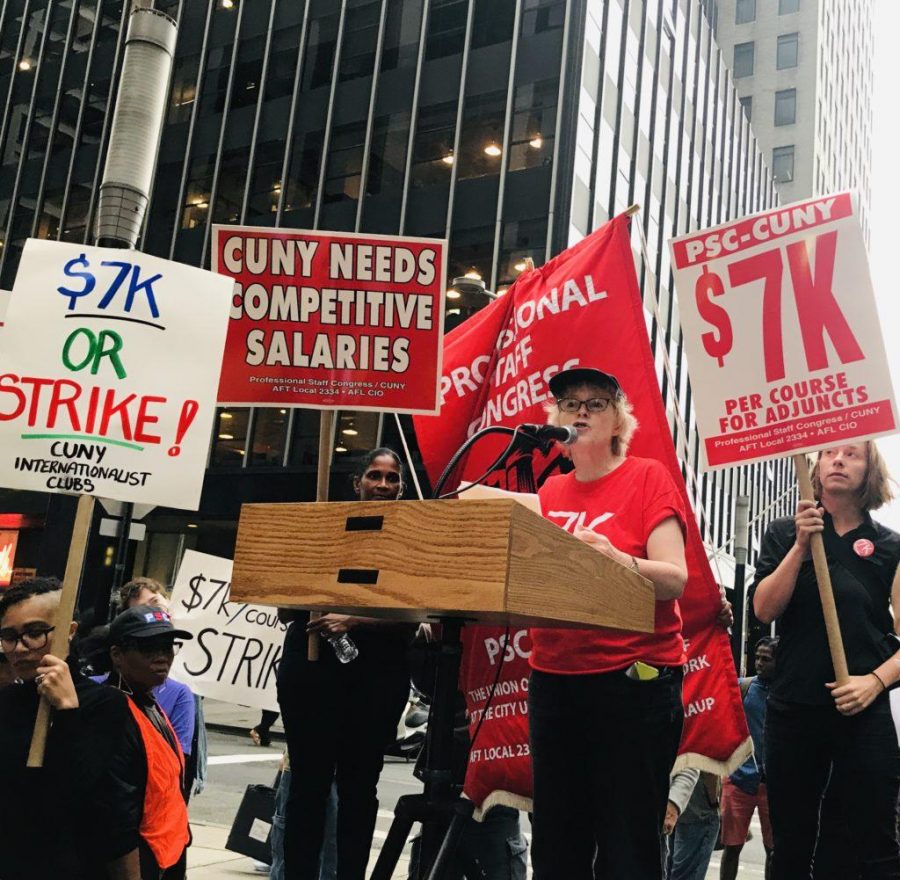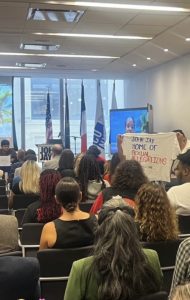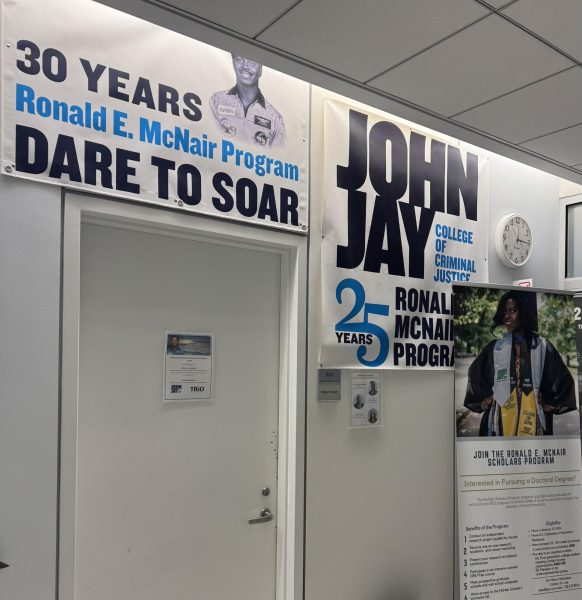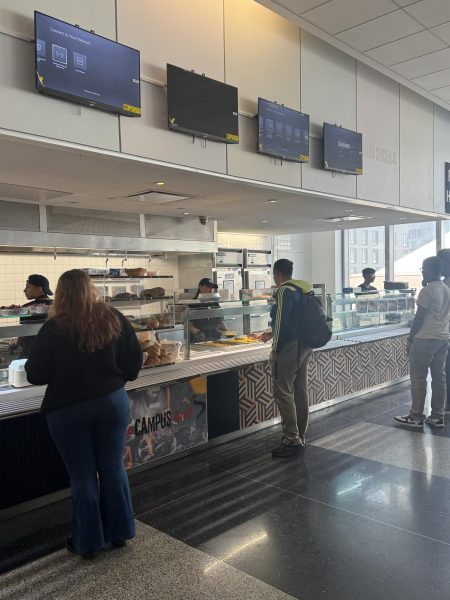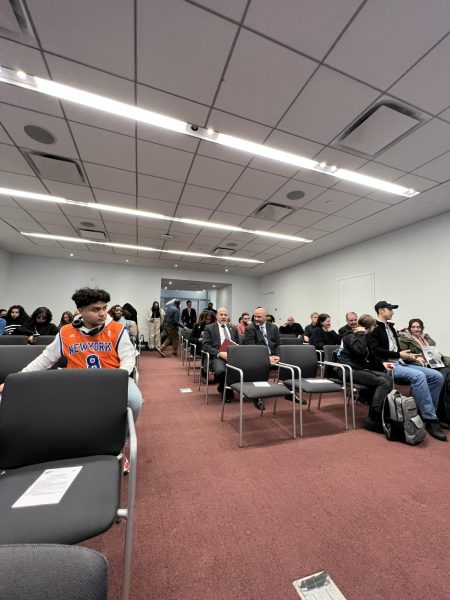The Professional Staff Congress Demand a 7k Per Course Contract for Adjuncts
October 1, 2018
During community hour on September 20th, professors strolled into The Professional Staff Congress Chapter Meeting to discuss and raise awareness for an adjunct wage of 7k per course for CUNY adjunct professors.
Thirty-thousand faculty, staff, and the CUNY research foundation are represented by the Professional Staff Congress (PSC) union. In a looming political era, PSC is dedicated to advocating the terms and conditions of employment for the university’s members.
PSC negotiates and enforces bargaining agreements for employment contracts. PSC also participates in political activity seeking to be an advocate for the staff and student body on institutional issues.
PSC’s leadership consists of its principal officers, executive council, and delegate assembly.
Daniel Pinello, a professor in the Political Science department and Chapter Chair of the Professional Staff Congress ran the meeting with Union President Barbara Bowen and First Vice President Andrea Vásquez as guest speakers, discussing the contract negotiation process — a contract demand of a minimum wage of 7k per course for all adjunct professors.
“More than half of all John Jay classes are taught by adjunct faculty members,” Daniel Pinello said. “As a result, most students who have a vested interest in securing a quality education have good reason to be concerned that their teachers are paid at least a living wage.”
The current minimum an adjunct instructor makes at CUNY is $3,222 per course.
Adjunct instructors are turning to their unions to express concerns and raise awareness to not only legislators in Albany but to the John Jay student body.
“I knew this before I started and decided to take on the challenge anyway, but adjunct compensation isn’t fair or just, so I was excited to hear about the $7,000 per course demand in the new contract and was curious about that process,” said Katherine Surrence, a new adjunct professor in the psychology department.
Instructors seek their union to raise awareness and to feel included within their departments and the school community.
“More broadly I believe in the labor movement as an equalizing force in American life, though it’s struggling badly right now, and I wanted to learn more about and support the union,” said Surrence. “I also would like to be more politically involved both for labor and economic justice and in electoral politics than I am right at the moment.”
“I am always looking for organizations that I feel a sense of belonging in, and my own union seemed like a logical place,” she said.
A decent salary for adjuncts may be in the interest of both full-time faculty and the student body.
“Many adjuncts have multiple jobs and they run from here to another CUNY job,” Barbara Bowen said. “People who do dog walking, people who do janitorial work, people who do babysitting, people who waitress, people rush to another job because this job doesn’t pay enough.”
The compensation surrounding adjunct faculty is detrimental to student success.
“Just as some students who work full-time or have significant family obligations don’t have as much opportunity to prepare for classes, part-time faculty members who earn below-poverty-level wages at John Jay have to take on other jobs to pay the rent and buy food,” Daniel Pinello said.
The lack of time adjunct instructors have for themselves and their students reverberates to the entire institution.
“As a result, part-time faculty don’t have as much time to devote to their students as do full-time faculty members,” she said.
In attendance, Susan Kang, associate professor of political science, took the mic to express her concerns about how the University suffers as a whole.
“John Jay brags about the economic mobility they [the students] gain from being here. I tell them there’s a high-risk chance that you’ll be teaching for about thirty-five hundred dollars a class despite all the training you get,” Kang said. “You can see their faces fall and how sad they are from learning this and this applies to the entire academic field.”
“Fighting for 7k is also fighting for an economic possibility for our students to consider becoming academics, and academic fields need people like our students, students from diverse backgrounds, students of color, students who are from a class of first-generation Americans,” Kang said.
PSC gathered for a Contract Demonstration on September 27th — a protest that lasted two hours.
CUNY Professors marched and chanted in front of the office of William Thompson, Chairperson of the CUNY Board of Trustees.
“Tax the rich not the poor, stop the war on CUNY,” they chanted.
“CUNY Board of Trustees we demand full public funding now! It is your job to ensure that and to help us win that, to stand up and do the right thing,” said Carly Smith, adjunct lecturer and PSC Vice President of part-time personnel. “PSC, CUNY, it is long past time to reclaim the fruits of our collective labor.”
Union President Barbara Bowen shared some encouraging words as she introduced a student speaker.
“We are so so lucky because we know that our hearts and our power are behind our students and our students believe in us,” she said.
PSC has scheduled a formal contract bargaining session for October 4th.


